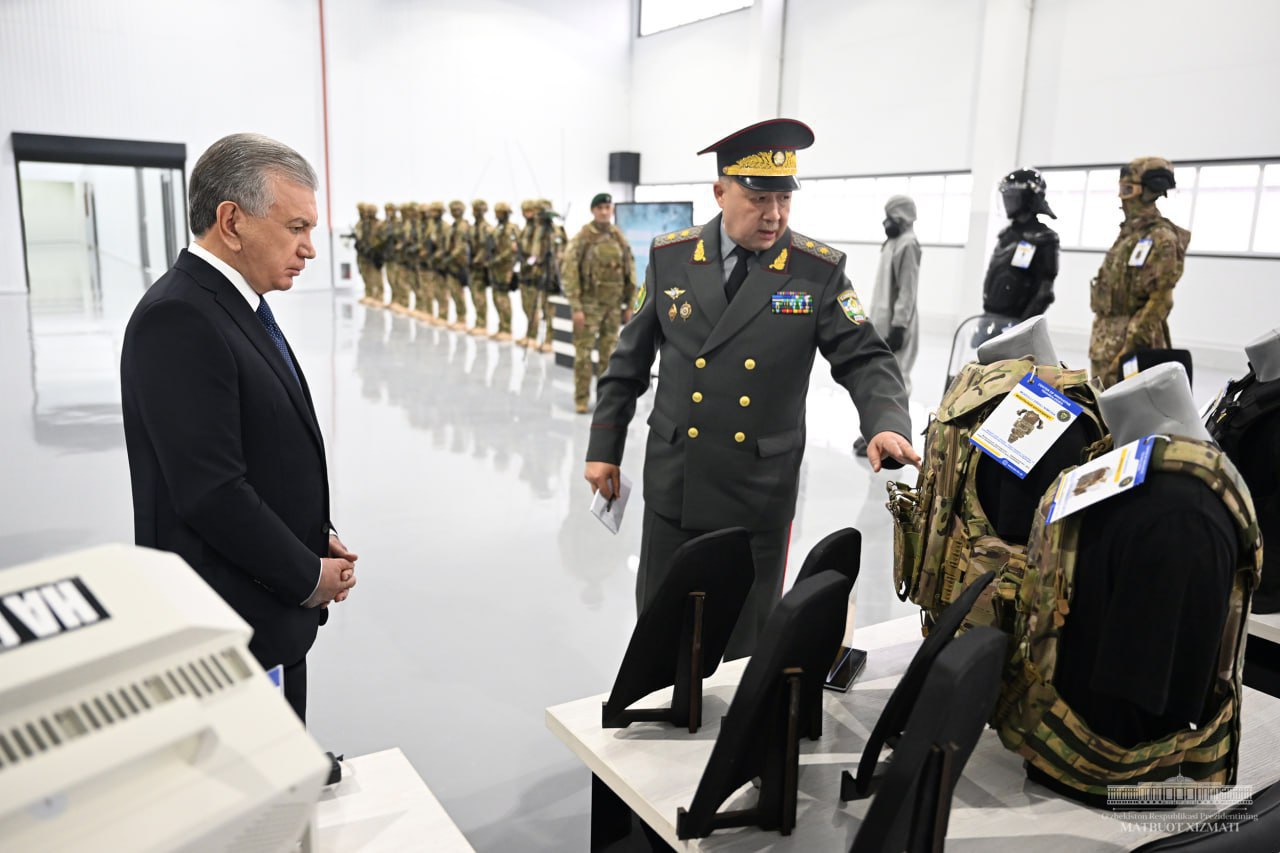
President Shavkat Mirziyoyev at the launch of a military production facility in Tashkent. Source: KUN.UZ
After declaring victory with forty percent of the votes, Taiwan’s President-elect William Lai of the Democratic Progressive Party announced that his victory has brought Taiwan to an “irreversible path” toward independence (Tengri News). This electoral victory allowed Kazakhstan’s Ministry of Foreign Affairs to reaffirm its support for the People’s Republic of China, which seeks to ‘reunify’ the island with Mainland China. In response, the Ministry reiterated its “strong support for the ‘One-China’ principle” and its support for the Chinese Communist Party’s efforts to peacefully reunify with the island (Kazinform). Kazakhstan’s announcement of support demonstrates the close ties that President Tokayev is trying to pursue with the People’s Republic of China.
Following President Tokayev’s pledge to boost the Creative Economy in Kazakhstan, the government announced a new ‘special tax regime’ for creative businesses this past week. This new tax policy grants a tax exemption on corporate and personal income tax and value-added tax for all entrepreneurs in the country. It replaces these multiple tax regimes with a single tax between two and four percent of income (Astana Times). The tax will apply across forty creative industries in the country – impacting nearly 133,000 Kazakhstani citizens. This new creative tax rate applies to companies that make less than 2.2 billion tenge annually with no more than two hundred staff members, according to Kazakhstan’s Minister of Culture and Information (Kazakhstan Newsline). In addition to this change to Kazakhstan’s tax laws, the Ministry of Tourism and Sports reported that a ‘zero-rate’ will be applied to tourists entering Kazakhstan, beginning on January 9, meaning that tourists will be precluded from paying tourist taxes in the country. This removes a tax of between 690 to 1,726 tenge at tourist accommodation sites across the country (Astana Times).
Earlier this week, President Shavkat Mirziyoyev, in his capacity as Supreme Commander-in-Chief of Uzbekistan’s Armed Forces, chaired an expanded Security Council meeting to set his country’s military agenda for the new year. The principal issues discussed were the review of the activities of defense ministers and local government, the improvement of the ‘patriotic education’ curriculum in the country, and the development of a modern combat readiness policy, particularly in the field of cyber security (Uz Daily). The same day as the expanded Security Council meeting, President Mirziyoyev also toured the offices of the Defense Industry Agency, where he announced the production of new military products to modernize the military and create the “soldier of the future” in the Uzbekistan army (Tashkent Times). The president’s review and refit of the armed forces came days before the country’s national Day of the Defenders of the Motherland, which honors the formation of the country’s military thirty-two years ago. In a speech commemorating the holiday, he cited the efforts his ministries were taking to modernize the armed forces and ensure the territorial integrity of Uzbekistan – all a part of his Uzbekistan-2030 defense policy (Sputnik Uzbekistan).
As part of ongoing negotiations to resolve the Kyrgyz-Tajik border dispute, officials from both states reached a ‘fundamental agreement’ on border delineations in the Kulundu, Maksat, and Arka border regions (Akipress). In a televised speech, the representative of the State Committee for National Security of Kyrgyzstan, Kamchybek Tashiev, and his Tajikistani counterpart Saimumin Yatimov announced that both sides were satisfied with how the border demarcation process has been ongoing (24.kg). The negotiations, which were overseen by the Turkish Ministry of Foreign Affairs, were received with satisfaction by the Turkish counterpart. According to the Turkish Foreign Minister, Hakan Fidan, negotiations will be resolved by March, which will lead to greater regional stability and cooperation between Central Asian states (Asia-Plus Tajikistan).
Elsewhere in the region, it was announced that Pakistani and Iranian officials will meet in Islamabad with representatives of the Taliban government in Kabul to discuss ongoing efforts to stabilize the country, amidst recent shocks in the past year. The primary concern for both Pakistan and Iran is the use of Afghanistan's territory to harbor extremist and terrorist groups that have perpetuated terrorist attacks against both states this past year (Ariana News). Pakistan, in particular, has accused the Taliban of collaborating with the extremist group Tehreek-e-Taliban Pakistan, a group that has caused terrorist attacks within Pakistani territory, while the deportation of thousands of migrants has strained relations between Kabul and Islamabad. Likewise, extremist incursions from Nimrouz province in Afghanistan and a deadly terror attack in the Kerman province of Iran on January 3, 2024, which is now attributed to the Afghanistan-based ISIS-K extremist group have impacted Iranian-Afghanistani relations (Aljazeera, Khaama Press News Agency)

